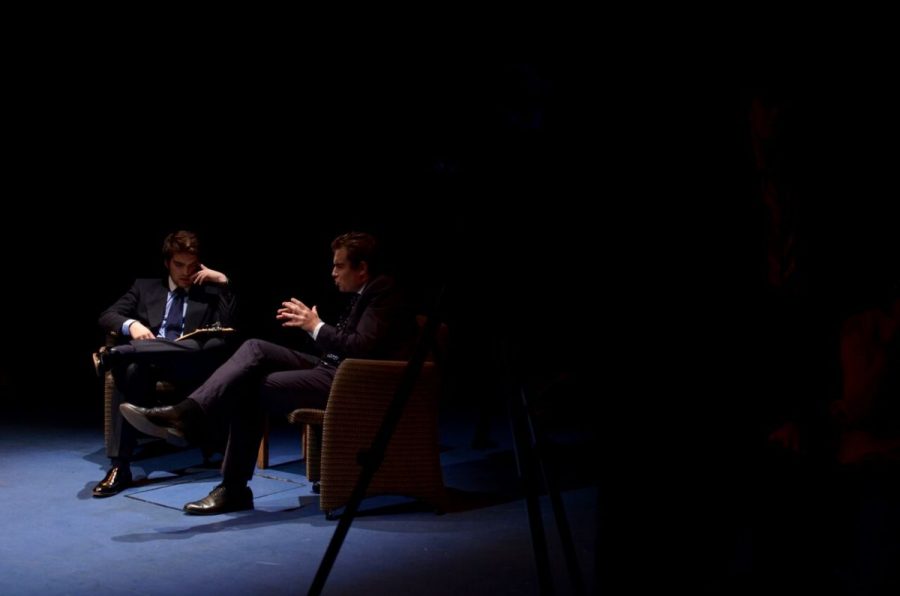In this era of politics-as-showbiz, it’s re-educational to be reminded of a time when politicians were still struggling to learn the rules of the media game. Back in the early days of televised debate, Richard Nixon famously came a cropper, his sweaty appearance in debate against JFK reputedly costing him the 1960 election. Yet many years later when smooth, and supposedly soft, British interviewer David Frost stumped up big bucks to interview him, the chance to restore his reputation after the Watergate scandal was too good to miss. After all, Watergate had made Nixon the most reviled of all Presidents. Of course, it’s only to be hoped it stays that way, given who could end up in the White House after next month’s election…
Such topical considerations must have been to the fore when EUTC decided to stage Frost / Nixon here at their Bedlam home. It’s timely, and will have decent audience recognition. The play, originally staged at the Donmar Warehouse a decade ago, was also made into an Oscar-nominated film, directed by Ron Howard and starring Michael Sheen and Frank Langella as the two protagonists. At just over 90 minutes, this Bedlam version comes in half an hour shorter than the film, with less time spent on Frost’s precarious financial situation (he had to underwrite the filming himself at great personal risk) and on some of the convolutions of Watergate itself. That’s no bad thing. The play has Nixon’s Chief of Staff, Jack Brennan (Sasha Briggs), and Frost’s researcher, Jim Reston (Macleod Stephen), narrating their respective side’s take on matters, which keeps things flowing, and there’s no danger of it overstaying its welcome with over-heavy political scheming.
Both leads – Callum Pope as Frost and Paddy Echlin as Nixon – are well cast, giving satisfyingly watchable performances. Their characterisations, almost inevitably, seem drawn from Sheen and Langella in the film rather than directly from Frost and Nixon themselves, but then again these are impeccable performances to draw on, and neither man shirks from challenging roles which could easily fall flat. Not all of the supporting cast are of the same high standard, but no-one particularly lets the side down.
There are a few rough edges – people come in early on lighting and speaking cues on several occasions. It’s also hard in a lowish tech setting to get the bead-of-sweat super close-up that would heighten tension further. The interviews are live broadcast on the backdrop, but this too is a little glitchy.
Yet although the psychological battle can’t be fully realised within these confines, EUTC offer a good rendering of an interesting play that makes you yearn for the days when political villains were only as bad as Nixon.
